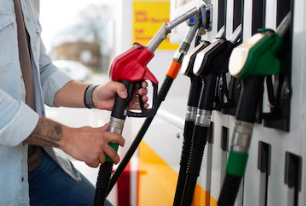$TSLA $BYDDF $BP
#ElectricVehicles #EVMarket #UKAuto #Sustainability #CleanEnergy #GreenEconomy #CarbonEmissions #FossilFuels #EnergyTransition #RenewableEnergy #ElectricCars #ClimateChange
Britain is projected to reach “peak gasoline” in 2024, marking a profound shift in the country’s automotive and energy markets as electric vehicles (EVs) gain significant momentum. A recent report highlighted that as more British consumers adopt EVs and governments ramp up sustainability efforts, this milestone could signal the beginning of the end for the dominance of petrol-powered cars. With tighter regulations on carbon emissions and generous subsidies favoring EV buyers, the groundwork is being laid for a transformation in consumer preferences and energy infrastructure. Analysts have long speculated about when the world’s major economies will witness their peak gasoline consumption, and the UK appears poised to lead this trend in Europe. For investors, the implications are far-reaching, from a potential surge in EV-related stocks to tightening margins for oil giants.
The automotive market is already showing signs of rapid electrification, with EV sales consistently climbing in the UK. Data from industry reports indicate that EVs could account for as much as 35% of new vehicle registrations by 2024, even as internal combustion engine (ICE) vehicles experience waning demand. Companies like Tesla ($TSLA) and BYD ($BYDDF), two of the world’s largest EV manufacturers, stand to benefit as market share shifts away from traditional automakers. This trend also puts significant pressure on legacy carmakers to either adapt or risk losing relevance. At the same time, the energy sector is expected to face serious disruptions. As gasoline demand nears its peak, oil companies such as BP ($BP) must accelerate plans to diversify into renewable energy solutions or risk eroding profit margins in their downstream business operations.
This pivotal transition further underscores the critical role of public policy in shaping market dynamics. The UK government has committed to ending the sale of new petrol and diesel cars by 2030, and such regulatory deadlines create a ripple effect through supply chains, consumer behavior, and investment channels. Policymakers have also prioritized expanding the EV charging infrastructure, which is crucial for maintaining the pace of adoption. As a result, infrastructure firms and renewable energy providers may see increased capital flows from both public and private sectors. Furthermore, with EVs offering lower operating costs and improved technology, the value proposition for consumers continues to strengthen, potentially fueling an accelerated decline in the gasoline market even before the forecast peak year.
The broader economic impact could be transformative. As the UK’s reliance on petrol declines, domestic and global oil prices may come under pressure, potentially altering geopolitical relations and energy trade flows. OPEC and other oil-producing nations may need to recalibrate their strategies to address reduced demand from key markets like the UK and Europe. Financial markets are paying close attention, with investors reallocating assets into renewable energy funds and green bonds. Meanwhile, cryptocurrencies aimed at supporting clean energy projects or carbon credit markets could also gain traction. For both individual and institutional investors, Britain’s approach to reaching “peak gasoline” serves as a case study in the global shift toward a low-carbon future, presenting substantial risks and opportunities across sectors.











Comments are closed.